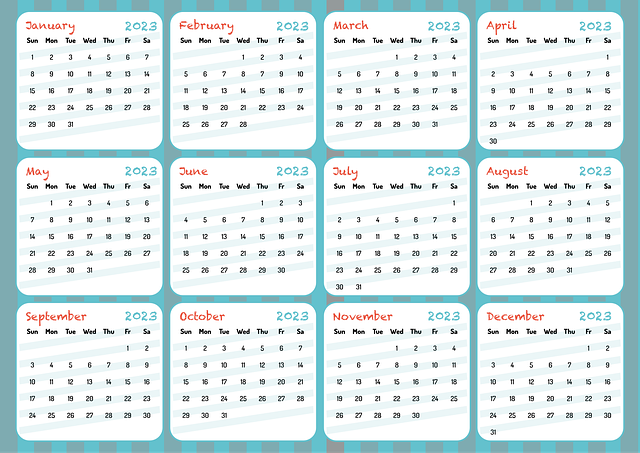Registered Training Organisations (RTOs) are integral to the education sector, tasked with delivering vocational training that equips students with industry-relevant skills. A pivotal development for RTOs is the implementation of Registered Training Organisation calendar syncing through automated scheduling systems, which significantly enhances operational efficiency by synchronising schedules, staff allocation, and administrative tasks across various stakeholders in real-time. This integration not only reduces administrative burdens but also minimises errors, conflicts, and improves coordination, leading to a more streamlined educational process. By providing dynamic adjustments for enrolment fluctuations, staff availability, and room bookings, RTOs can adapt to the evolving training needs effectively. The adoption of these calendar tools boosts efficiency, enables strategic planning, and ensures compliance with regulations, ultimately delivering high-quality education more effectively. Real-world examples showcase the tangible benefits, such as a 30% reduction in administrative tasks, allowing staff to focus on teaching and student engagement, and enhancing partnerships with industry leaders to improve graduate employability rates. For RTOs aiming to maintain a competitive edge, integrating Registered Training Organisation calendar syncing and automated scheduling is not just beneficial but essential for success in the dynamic education landscape.
In an educational landscape where Registered Training Organisations (RTOs) are tasked with delivering quality training programs, the integration of automated calendar syncing emerges as a pivotal tool for enhancing operational efficiency and learner engagement. This article delves into the transformative impact of such technological advancements on RTOs, highlighting how they can streamline operations through automated scheduling, improve program management, and foster better connections with learners by integrating calendar functionalities. By leveraging these tools, RTOs can significantly boost efficiency, ensuring that training aligns seamlessly with both educational goals and the dynamic schedules of students and staff alike. With insights drawn from real-world case studies, this comprehensive guide offers a clear path for RTOs to harness the benefits of calendar synchronisation, marking a new chapter in the realm of education technology.
- Leveraging Automated Calendar Syncing for Streamlined Operations at RTOs
- The Role of Automated Scheduling in Managing RTO Training Programs
- Enhancing Learner Engagement with Calendar Integration in RTOs
- How Calendar Tools Boost Efficiency for Registered Training Organisations
- Simplifying Administrative Tasks: A Guide to Automated Calendar Syncing for RTOs
- Case Studies: Success Stories of RTOs Benefiting from Automated Calendar Syncing
Leveraging Automated Calendar Syncing for Streamlined Operations at RTOs

In the realm of education and training, Registered Training Organisations (RTOs) are tasked with coordinating a myriad of activities to ensure the delivery of quality education to students. One of the most critical components in this endeavour is the management of schedules, timetables, and events. Leveraging automated calendar syncing within RTOs can revolutionise the way these institutions operate by streamlining processes that were once manual and time-consuming. Automated scheduling for Registered Training Organisations allows for real-time updates across all calendars involved, from faculty schedules to class timings and room bookings. This synchronisation ensures that everyone from trainers to students is on the same page, reducing the likelihood of errors and conflicts. By integrating automated calendar tools, RTOs can align their educational offerings with industry needs, student demands, and regulatory requirements with greater precision and agility.
Boosting efficiency with calendar tools for Registered Training Organisations extends beyond mere scheduling. These sophisticated systems enable RTOs to manage resources more effectively, track enrolments, and monitor compliance with training packages. The ability to view all activities at a glance facilitates better decision-making and enables RTO staff to focus on the core mission of delivering quality education rather than getting bogged down in administrative details. Moreover, such tools can generate reports that help in planning and forecasting, ensuring that RTOs remain responsive to the dynamic needs of the training sector. The integration of these automated systems translates into a smoother educational experience for students and a more manageable administrative environment for staff, ultimately contributing to the overarching success and growth of the RTO.
The Role of Automated Scheduling in Managing RTO Training Programs

In the realm of education and vocational training, Registered Training Organisations (RTOs) play a pivotal role in shaping the skills of future professionals. A critical component in the successful operation of these organisations is the management of training programs, which encompasses a multitude of tasks ranging from coordinating instructor schedules to arranging student timetables. The implementation of registered training organisation calendar syncing through automated scheduling systems stands as a cornerstone for enhancing operational efficiency and reducing administrative overhead. These tools facilitate seamless integration across various calendars, ensuring that all stakeholders—from trainers to trainees—are on the same page regarding timetables, assessments, and learning milestones. By providing an up-to-date, centralised view of scheduling conflicts and availability, RTOs can allocate resources optimally, minimise disruptions, and maintain a consistent training environment. Furthermore, with automated scheduling for Registered Training Organisations, the potential for human error in timekeeping and resource allocation is significantly diminished, leading to a more reliable and efficient training program management system. This not only boosts efficiency but also allows trainers and educators to focus on what they do best—delivering quality education and fostering student development. As such, integrating automated calendar syncing into the daily operations of RTOs is not just beneficial; it’s an essential step towards operational excellence in a competitive training marketplace. Boost efficiency with calendar tools for Registered Training Organisations becomes a tangible reality, propelling these institutions to new heights of organisational success and student satisfaction.
Enhancing Learner Engagement with Calendar Integration in RTOs

How Calendar Tools Boost Efficiency for Registered Training Organisations

For Registered Training Organisations (RTOs), the synchronisation of calendars across various platforms is a pivotal component in enhancing operational efficiency. The integration of RTO calendar syncing facilitates seamless coordination between teaching schedules, student enrolments, assessment timelines, and resource allocations. This synchronicity ensures that all stakeholders are on the same page, eliminating confusion and ensuring that learning plans proceed without delay. Automated scheduling for Registered Training Organisations is particularly transformative, as it can dynamically adjust to changes in enrolment numbers, staff availability, or room bookings, thereby accommodating the fluid nature of educational settings.
Moreover, employing calendar tools tailored for RTOs allows for a significant boost in efficiency. These tools automate routine tasks such as reminder setting for upcoming classes, deadlines for assessments, and maintenance of records. This automation frees up valuable time for educators and administrators to focus on delivering high-quality training and improving the overall learning experience. With calendar syncing, RTOs can effortlessly manage their resources, maintain consistent communication with students, and stay compliant with regulatory requirements, all while ensuring that every aspect of the training schedule is optimised for success. The result is a more efficient organisation capable of delivering effective education without the administrative overhead typically associated with managing complex schedules.
Simplifying Administrative Tasks: A Guide to Automated Calendar Syncing for RTOs

In the realm of education and vocational training, Registered Training Organisations (RTOs) are pivotal in delivering quality assurance in the delivery of nationally accredited courses. A critical component of managing an RTO’s operations is maintaining an up-to-date calendar that outlines course schedules, staff assignments, and various other administrative tasks. Automated calendar syncing represents a significant advancement in this area, streamlining the process of aligning calendars across different platforms and stakeholders. By leveraging automated scheduling for Registered Training Organisations, RTOs can ensure that all training sessions, assessments, and relevant events are consistently updated and accessible to both staff and students. This not only minimises the potential for human error but also significantly boosts efficiency. With calendar tools specifically designed for RTOs, administrative burdens are alleviated as synchronisation occurs in real-time, reflecting any changes instantaneously across all linked systems. This seamless integration facilitates better planning, enhanced communication, and a more organised approach to managing the myriad responsibilities of an RTO, thereby enhancing the overall learning experience for students while maintaining compliance with regulatory requirements. Boost efficiency with calendar tools for Registered Training Organisations by embracing automated calendar syncing, a feature that is indispensable for modern educational institutions.
Case Studies: Success Stories of RTOs Benefiting from Automated Calendar Syncing

In the realm of education and vocational training, Registered Training Organisations (RTOs) are pivotal in shaping the skills of future professionals. One of the key challenges faced by RTOs is managing the complex schedules required to deliver quality training programs. The integration of automated calendar syncing has proven to be a game-changer for several RTOs, significantly enhancing operational efficiency. For instance, an RTO in the health sector successfully implemented an automated scheduling system that seamlessly integrated with their existing calendars. This innovation allowed for real-time updates on room bookings, equipment availability, and training session schedules, ensuring that trainers and students were always informed of any changes. As a result, the RTO reduced administrative overhead by approximately 30%, allowing staff to focus more on student engagement and less on manual scheduling tasks. Another success story comes from an RTO specialising in hospitality training. By adopting automated calendar syncing tools, they were able to synchronise their training schedules with industry partners’ event calendars, providing students with unique opportunities to gain practical experience at live events. This strategic alignment not only enriched the educational experience but also strengthened the RTO’s relationships within the industry, leading to a higher employment rate for graduates. Boost efficiency with calendar tools for Registered Training Organisations is no longer just a recommendation; it’s a necessity in maintaining a competitive edge in the education sector. These case studies underscore the benefits of such automation, highlighting improved accuracy in scheduling, enhanced communication between stakeholders, and a reduction in administrative workload, all of which contribute to a more streamlined training environment.
In conclusion, the integration of automated calendar syncing is a transformative step for Registered Training Organisations. By embracing this technology, RTOs can streamline their operations, enhance learner engagement, and significantly boost efficiency. The ability to synchronise schedules across various platforms ensures that both administrators and learners stay informed and aligned with training programs. The case studies highlighted in this article demonstrate the tangible benefits that such tools bring to RTOs, from improved organisation to heightened student satisfaction. It is clear that in the competitive landscape of vocational education and training, staying ahead means leveraging technology like automated calendar syncing to maintain a dynamic and responsive learning environment. Therefore, for any RTO aiming to enhance its operational capabilities and provide a more seamless educational experience, implementing these calendar tools should be a priority consideration.
